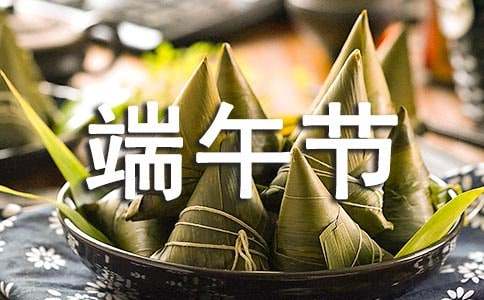- 相关推荐
端午节的由来和习俗英语
古人纪年通用天干地支,按地支顺序推算,农历的正月开始为寅月,按地支“子丑寅卯辰巳午未申酉戌亥”顺序推算,第五个月正是“午月”,而午时又为“阳辰”,所以端午也叫“端阳”,
端午节的由来和习俗英语
。午,古人与“五”通用,故端午与端五同义。又因其月日数相同,人们又称端午节为“重五节”或“重午节”。
那端午节的由来和习俗英语是怎么样的呢,欢迎阅读下文。
端午节的由来和习俗英语一:
dragon boat festival of 2012 falls on june 23. the holiday in china starts from june 22 to 24, 2012. welcome to china and explore the traditional folk customs of this interesting festival! schedule of dragon boat festival in recent years is offered in the table on the right.
introduction to dragon boat festival
falling on the 5th day of the 5th month according to chinese lunar calendar, the dragon boat festival is one of great significance. it has been held annually for more than 2,000 years and is notable for its educational influence. the festival commemorates the patriotic poet qu yuan (340-278 bc), and also acts as a chance for chinese people to build their bodies and dispel diseases. many legends circulate around the festival but the most popular is the legend of qu yuan.
legend of qu yuan
as a minister in the state of chu - one of the seven warring states before qin (221bc - 206bc) in china's first feudal dynasty - qu yuan supported the decision to fight against the powerful state of qin (one of the seven states during the warring states period (476 bc - 221 bc)) together with the state of qi (ibid). however he was slandered by the aristocrat zi lan and was subsequently exiled by the king. in order to show his love and passion for his country, he wrote many enduring poems such as li sao (the lament), tian wen (asking questions to the heaven) and jiu ge (nine songs) and is therefore regarded as a famous poet in china's history. in 278 bc, after finishing his last masterpiece - huai sha (embracing the sand), he drowned himself in the river rather than see his country occupied and conquered by the state of qin.
on hearing of qu yuan's death, all the local people nearby were in great distress. fishermen searched for his body by sailing their boats down the river and other people threw food such as eggs and food like zongzi into the river to attract fish and other animals from destroying qu yuan's body. later, many people imitated these acts to show their respect for this great patriotic poet and this practice continues today.
端午节的由来和习俗英语二:
端午节吃什么?“粽包分两髻,艾束著危冠。旧俗方储药,羸躯亦点丹。”端午节不可不吃的美味食物就是粽子(tsung-tse)。
粽子tsung-tse:Glutinous rice filled with meat, nuts or bean paste and wrapped in bamboo leaves. It is associated with Dragon Boat Festival with historical meaning.The custom of eating zongzi is now popular in North and South Korea, Japan and Southeast Asian nations.
端午节喝什么?“樱桃桑椹与菖蒲,更买雄黄酒一壶。”端午节尝试一下雄黄酒吧。Adults drink Xiong Huang Wine, which can fend off evil spirits.
端午节玩什么? “鼓声三下红旗开,两龙跃出浮水来,
资料共享平台
《端午节的`由来和习俗英语》(https://www.unjs.com)。棹影斡波飞万剑,鼓声劈浪鸣千雷。”端午节最应景的节目就是赛龙舟。“Dragon boat racing is an indispensable part of the festival, held all over the country. As the gun is fired, people will see racers in dragon-shaped canoes pulling the oars harmoniously and hurriedly, accompanied by rapid drums, speeding toward their destination.端午节戴什么?端午节最有特色的饰物就是香包(sachet)。小孩佩戴香包,传说有避邪驱瘟之意。On Dragon Boat Festival, parents also need to dress their children up with a perfume pouch. They first sew little bags with colorful silk cloth, then fill the bags with perfumes or herbal medicines, and finally string them with silk threads. The perfume pouch will be hung around the neck or tied to the front of a garment as an ornament. They are said to be able to ward off evil.
端午节挂什么?“不效艾符趋习俗,但祈蒲酒话升平。”挂艾叶菖蒲hang branches of moxa and calamus around the doors of their homes 和悬钟馗像display portraits of evil's nemesis, Chung Kuei都是为了驱疾避凶,讨个吉利。
端午节的由来和习俗英语三:
端午节是中华民族古老的传统节日之一。
端午也称端五,端阳。
此外,端午节还有许多别称,如:
午日节、重五节,五月节、浴兰节、女儿节,天中节、地腊、诗人节、龙日等等。
虽然名称不同,但总体上说,各地人民过节的习俗还是同多于异的。
The Dragon Boat Festival is one of the oldest traditional festival of the Chinese nation. The Dragon Boat Festival also known as the end of five, the Dragon Boat festival. In addition, there are many nicknames, the Dragon Boat Festival such as: Good afternoon, section, section five, May Festival, bath Festival, daughter of festival, festival days, to LA, poet Festival, dragon, etc.. Although the names are different, but generally speaking, people around the holiday with different customs or more.
过端午节,是中国人二千多年来的传统习惯,由于地域广大,民族众多,加上许多故事传说,于是不仅产生了众多相异的节名,而且各地也有着不尽相同的.习俗。
其内容主要有:
女儿回娘家,挂钟馗像,迎鬼船、躲午,帖午叶符,悬挂菖蒲、艾草,游百病,佩香囊,备牲醴,赛龙舟,比武,击球,荡秋千,给小孩涂雄黄,饮用雄黄酒、菖蒲酒,吃五毒饼、咸蛋、粽子和时令鲜果等,除了有迷信色彩的活动渐已消失外,其余至今流传中国各地及邻近诸国。
有些活动,如赛龙舟等,已得到新的发展,突破了时间、地域界线,成为了国际性的体育赛事。
The Dragon Boat Festival, is a traditional Chinese habits of more than two thousand years, because of the vast territory, numerous nationalities, plus many stories, not only have so many different section, but also all over with different customs. The main contents are:
his daughter back home, the clock up like, welcome the ghost ship, hide afternoon, with midday leaf character, hang calamus, wormwood, travel sickness, Sachet, prepared sweet wine offerings, dragon boat race, tournament, batting, swing, give children Xionghuang, drinking realgar yellow wine, sweet wine, eat cake, salted eggs, dumplings and seasonal fruits, in addition to a superstitious activities have gradually disappear, the rest has spread throughout China and neighboring countries. Some activities, such as dragon boat racing, has been the development of new, breakthrough time and geographical boundaries, become an international sporting event.
【端午节的由来和习俗英语】相关文章:
端午节的由来和习俗06-11
关于端午节的由来和习俗10-27
白露节气的由来和习俗07-03
清明节的由来和习俗09-13
元旦的由来和习俗10-15
清明节的习俗和由来09-25
调研报告:端午节的由来与习俗05-31
元旦的由来习俗和传说10-02
腊八节的由来和习俗09-27
端午节的由来和传说08-30